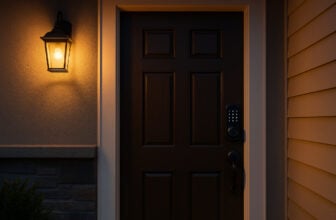For Texas homeowners, the roof over your head is more than just a structural component — it’s your home’s first and strongest line of defense against some of the most extreme weather in the country. From blistering triple-digit summers to sudden hailstorms, high winds, tornadoes, and Gulf Coast hurricanes, Texas homes take a beating year-round. Choosing the right roofing contractor isn’t just about getting shingles installed — it’s about protecting your property, your investment, and your peace of mind for years to come.
This guide breaks down everything Texas homeowners should consider when hiring a roofer — including why weather resilience matters, what credentials to look for, questions to ask during your estimate, and red flags that signal you should run the other way.
Texas Weather Creates Unique Roofing Challenges
Before choosing a roofer, it’s important to understand the environment your home must withstand. Texas isn’t a “one-weather” state — it has several distinct climate zones, all of which place significant stress on roofing materials and installation quality.
1. Extreme Heat and UV Exposure
Texas summers regularly push temperatures over 100°F with prolonged heatwaves. Intense UV exposure causes:
- Shingle blistering
- Premature granular loss
- Warped or curling shingles
- Increased attic heat transfer
- Faster breakdown of sealants and adhesives
A poorly installed or low-quality roof can fail years earlier than expected simply from the heat.
2. Sudden, Violent Hailstorms
Texas leads the nation in hail damage claims. Hail can crack, bruise, or puncture shingles, dent metal roofing, and weaken underlayment. Even “minor” hail can reduce the lifespan of a roof dramatically if the damage isn’t properly assessed.
3. Tornadoes and Straight-Line Winds
Central and North Texas experience severe windstorms with gusts exceeding 70+ mph. In these conditions:
- Shingles can tear off
- Ridge caps can detach
- Flashing can peel back
- Decking can be exposed
- Wind-driven rain can penetrate vulnerable points
Wind-resistant installation techniques are essential in this region.
4. Hurricanes and Tropical Storms (Gulf Coast)
From Houston to Corpus Christi and Brownsville, roofs must withstand:
- Prolonged heavy rain
- Uplift pressures
- Flying debris
- Flood-related humidity
Only a roofer experienced in storm-resistant systems should work on Gulf Coast homes.
5. Seasonal Temperature Swings and Freeze-Thaw Cycles
While Texas is known for heat, winter can introduce sudden freezes. These rapid temperature fluctuations can stress roofing systems, causing expansion, contraction, and cracking if the roof isn’t installed correctly.
This is why Texas homeowners must choose a roofer who understands the state’s climate — not just a general contractor who “does roofing.”
What to Look for When Choosing a Texas Roofer
1. Confirm They Are Local — Not Storm Chasers
After major storms, Texas sees an influx of out-of-state roofing companies offering quick repairs. Many disappear as soon as the next storm hits, leaving homeowners with no warranty support.
A legitimate local roofer will have:
- A physical local office
- A long-term reputation in the community
- Local reviews
- Established relationships with suppliers
Never hire a roofer who knocked on your door after a storm without researching them thoroughly.
2. Check Licensing & Insurance (Critical in Texas)
Texas does not require roofers to hold a state roofing license, which means homeowners must be extra cautious.
Before hiring, verify:
- General liability insurance
- Workers’ compensation insurance
- Commercial vehicle insurance
- Bonding, if offered
Ask for physical documentation and verify it with the issuing company.
If a roofer cannot provide proof of insurance on the spot, that’s a red flag.
3. Look for Manufacturer Certifications
In Texas, manufacturer certification is a strong sign of credibility and training. These include:
- GAF Master Elite®
- Owens Corning Platinum Preferred
- CertainTeed SELECT ShingleMaster™
Only a small percentage of roofers nationwide qualify for these programs.
Certified roofers can also offer upgraded warranties that uncertified contractors cannot.
4. Ask About Their Texas-Specific Installation Techniques
Because of high heat, hail, and wind, Texas roofs require stronger installation methods than those used in milder states.
Ask your roofer:
- Do you use six-nail installation for wind resistance?
- What type of ice & water shield do you use?
- Do you install synthetic underlayment instead of felt?
- Do you use impact-resistant shingles when recommended?
- How do you ventilate attics in extreme heat zones?
- What flashing methods do you use for wind-driven rain?
If they can’t answer confidently or seem unfamiliar with Texas building codes, move on.
5. Review Their Portfolio and Reputation
Look for a consistent track record:
- Before-and-after photos
- Real customer testimonials
- Reviews on Google, Yelp, Angi, or BBB
- A solid BBB rating
- Years in business (5+ is a strong baseline)
- Volume of completed roofs
Be wary of brand-new companies claiming decades of combined experience — verify their claims.
6. Ensure They Offer Comprehensive Roof Inspections
A trustworthy roofer should provide:
- A detailed written estimate
- Photos of problem areas
- An explanation of each recommended repair
- A breakdown of materials and labor
- Ventilation analysis
- Decking condition review
If a roofer spends only 5 minutes looking at your roof, they’re not thorough enough.
7. Evaluate Their Warranty Options
Professional Texas roofers offer two types of warranties:
- Manufacturer Warranty
Covers shingle defects. - Workmanship Warranty
Covers the quality and correctness of installation.
Be cautious of companies that only offer “lifetime shingle warranties.”
Without a workmanship warranty, the installation could fail, and you’ll still be responsible for the repair costs.
8. Compare Materials — Not Just Prices
With Texas weather, the difference between good and bad roofing materials can mean thousands in future repairs.
Ask for specs on:
- Shingle class (Class 3 vs. Class 4 impact-resistant)
- Thickness of underlayment
- Flashing type (steel vs. aluminum)
- Ridge vent systems
- Starter strips
If a quote is too cheap, materials are likely being downgraded.
Questions Texas Homeowners Should Ask Every Roofer
- Are you local to my city? How long have you been here?
- Can you provide proof of insurance?
- What roofing materials do you recommend for Texas weather?
- Do you install Class 4 impact-resistant shingles?
- How do you handle attic ventilation in extreme heat?
- What’s included in your workmanship warranty?
- What steps do you take to protect my property during installation?
- Will you inspect the decking and replace rotten boards?
- Do you offer financing?
- Who will be on-site supervising the installation?
The right roofer will answer confidently and transparently.
Red Flags Texas Homeowners Should Avoid
- No insurance
- No written estimate
- High-pressure sales tactics
- Door-knocking after storms
- Asking for large upfront payments
- Out-of-state plates or company documents
- No online presence
- Vague answers about materials
- Refusing to show certifications
If something feels “off,” trust your instincts.
Final Thoughts: The Right Texas Roofer Makes All the Difference
Texas weather doesn’t give homeowners a break — the sun, wind, hail, storms, and rapid temperature swings can shorten a roof’s lifespan if it wasn’t installed by an experienced, Texas-ready professional. Choosing the right roofing contractor protects your home, your finances, and your long-term peace of mind.
A great roofer won’t just install shingles — they’ll build a weather-resistant roofing system designed specifically for Texas conditions.





